The course, General Theory of Invasive Alien Species Management 2019, was held as one class for Hokkaido Summer Institute 2019.
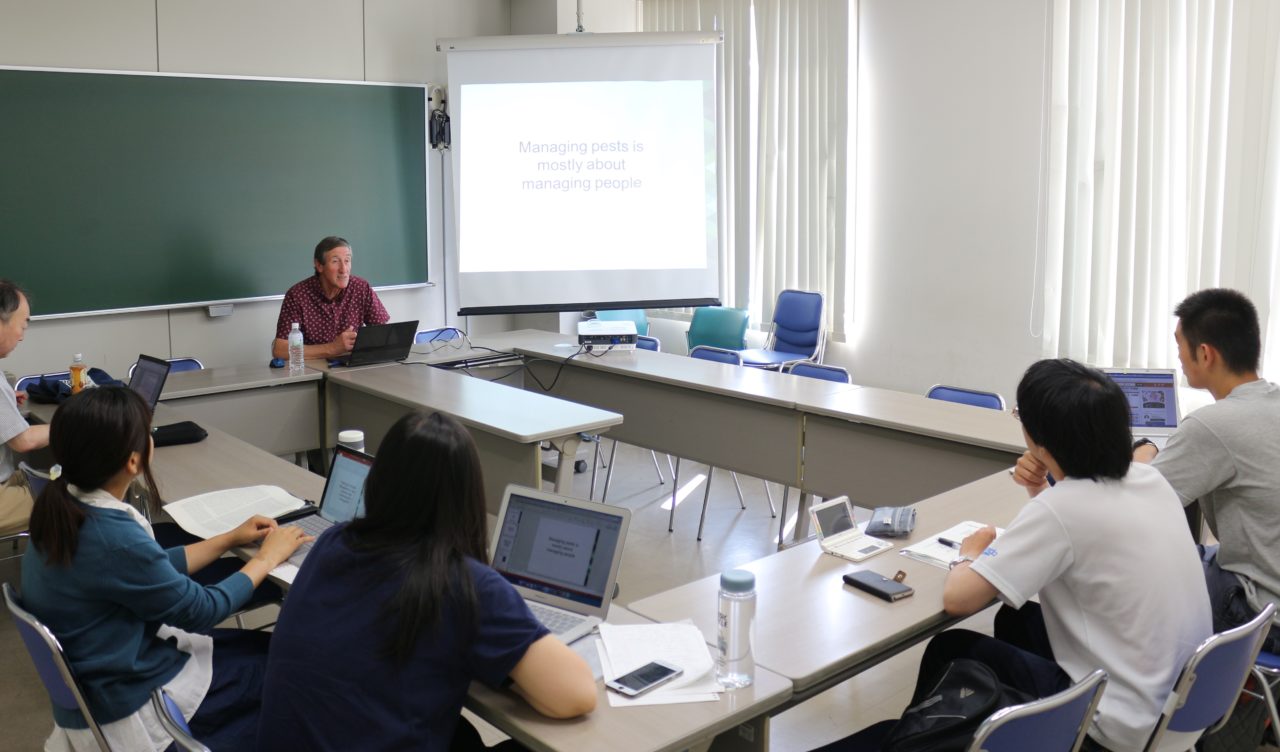
The lecturer for this class was Phil Cowan of the Landcare Research Center in New Zealand (Wildlife Ecology & Management. He also lectured for this class in the previous two years as well.
In this course, students learned the basic knowledge and technologies needed to face the impending challenge of managing Invasive Alien Species (IAS). The content of this course was designed for graduate students to give them both a chance to see the frameworks used to tackle this problem in New Zealand, a leading country in dealing with field, as well as grasp the current state of affairs concerning IAS in Japan. This is the second year that this course has been offered for graduate students.
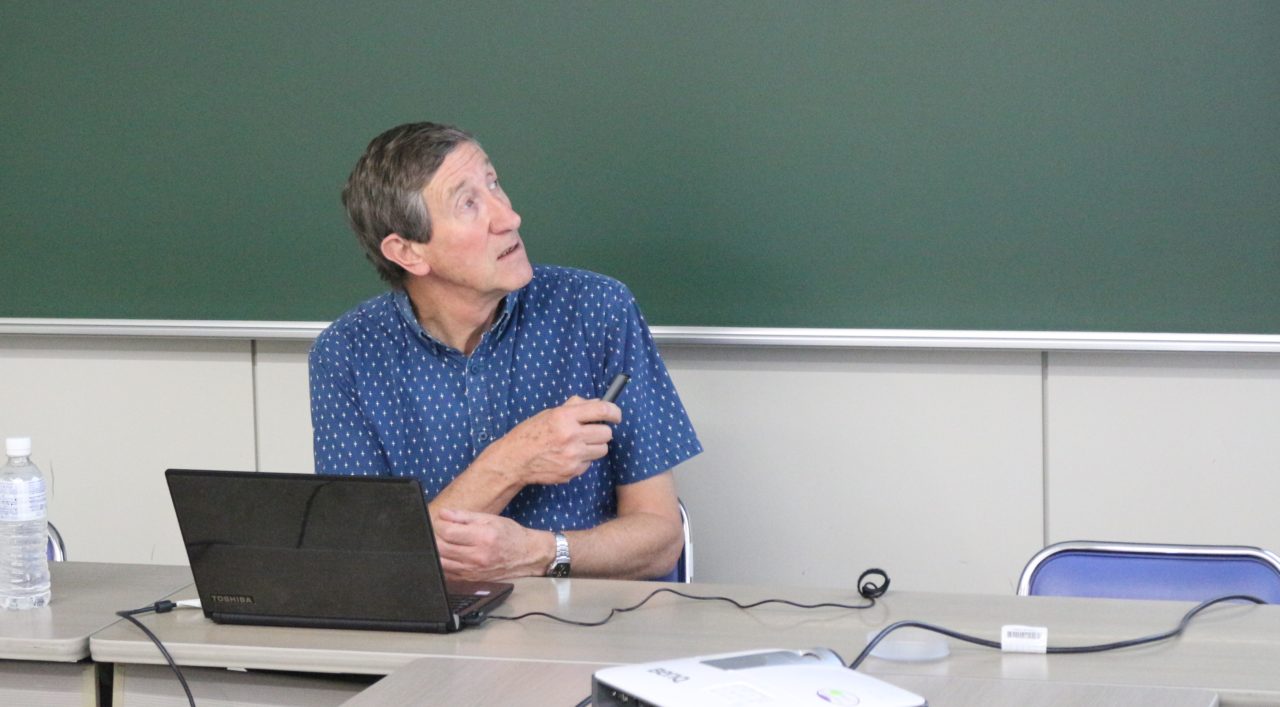
Dr. Cowan’s place of research, the Landcare Research Center, is a top level facility started by the New Zealand government to investigate soil and biological diversity. Dr. Cowan has spent many years working at this facility researching how to manage and prevent the arrival of alien species in New Zealand.
In this class, Dr. Cowan first taught students about a particular theme using both slides he prepared as well as his own experiences and new information coming out of New Zealand. Professor Toru Ikeda from the Hokkaido University Faculty of Humanities and Human Sciences would then lecture on how that theme is related to the situation in Japan.
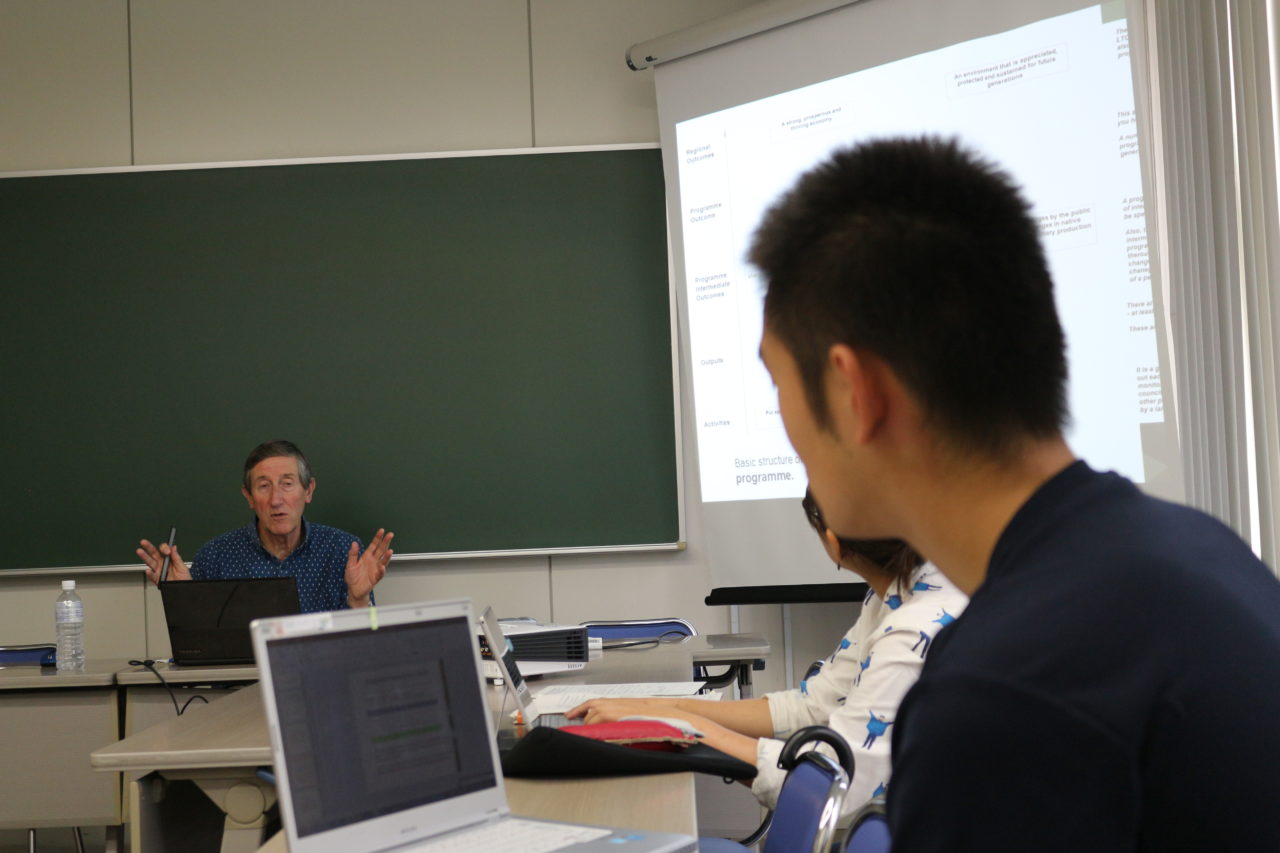
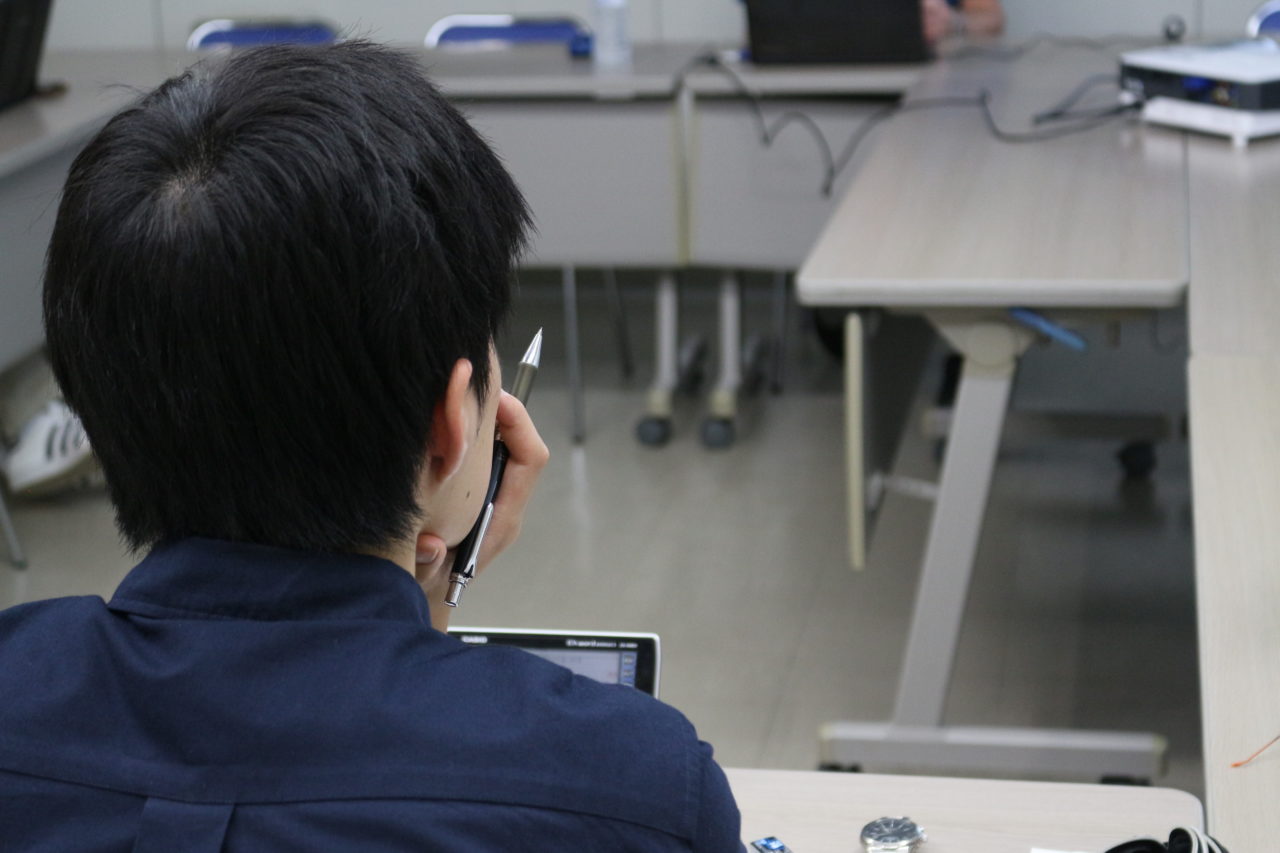
Each class period before going to break, students were given a chance to exchange opinions with and ask questions to the lecturers. At this time, Dr. Cowan would explain the situation in New Zealand and Professor Ikeda would compare Dr. Cowan’s answers with how things are in Japan.
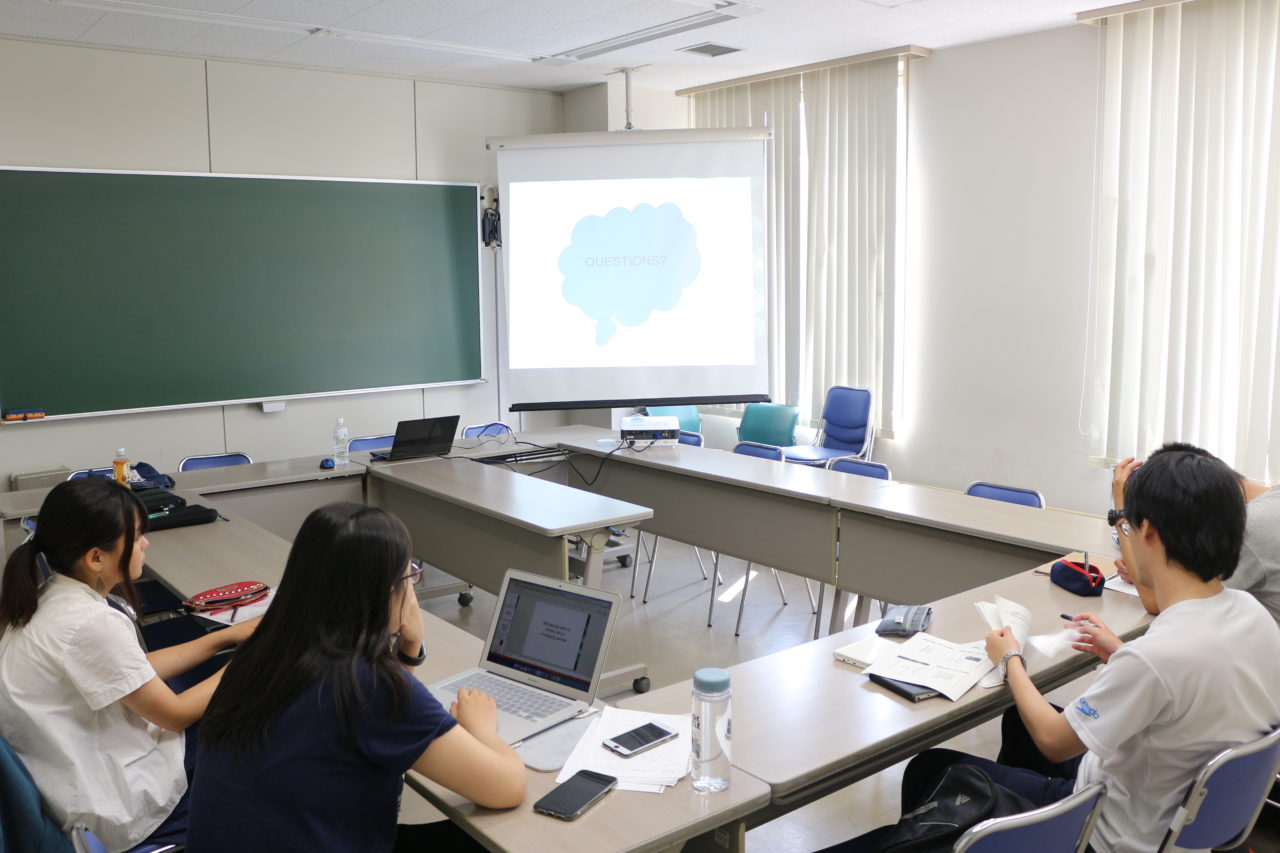
Dr. Cowan explained the difficulties involved with the implementation of long term invasive alien species management with limited resources by introducing examples in New Zealand. Specifically, he utilized examples in which the regional council made mistakes when determining the goal and outcome of invasive alien species management.
On the 5th and final day of class, students took a written examine, giving them a chance to apply the knowledge they had obtained in class.
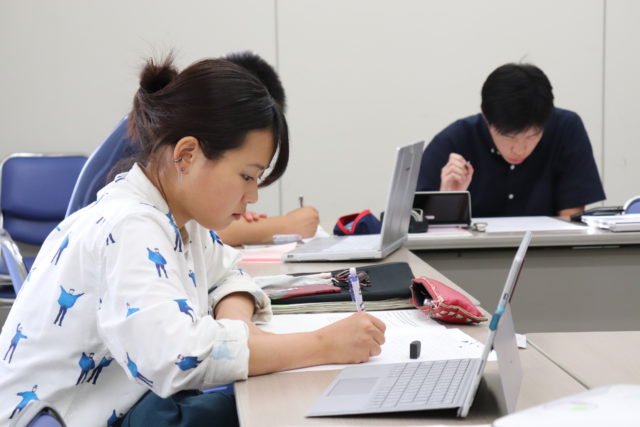
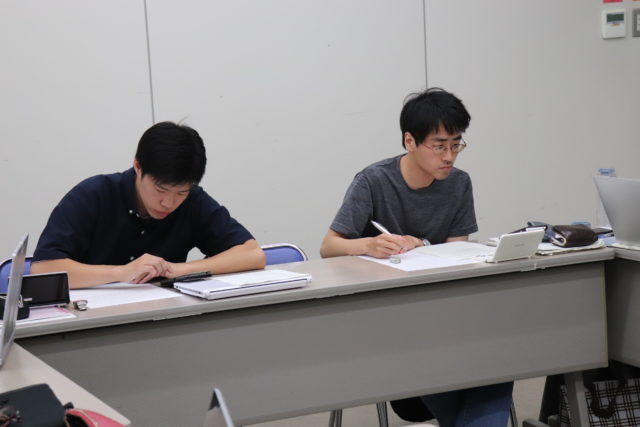
Students working carefully to write out their answer before the time limit expires
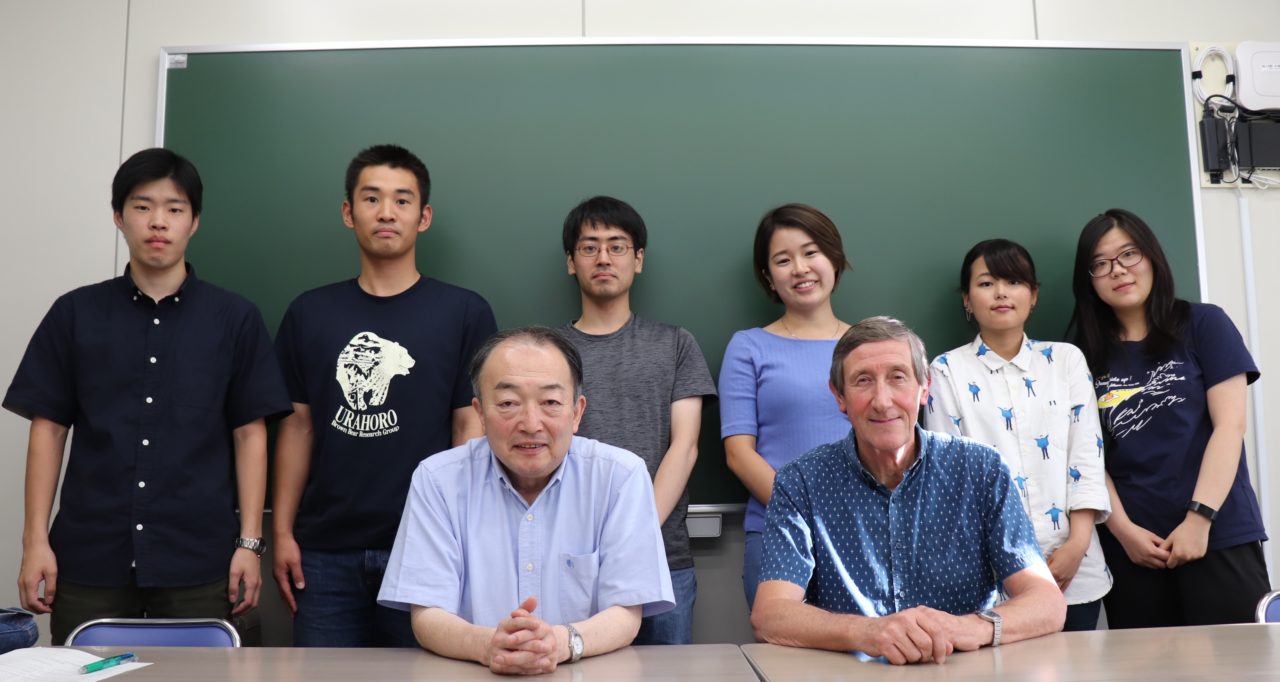
This course thus helped give students a chance to directly learn about the newest information about invasive alien species and the preventative measures used to combat them from an expert in this field. Dr. Phil Cowan is scheduled to come back next year to lecture in this course once again.


